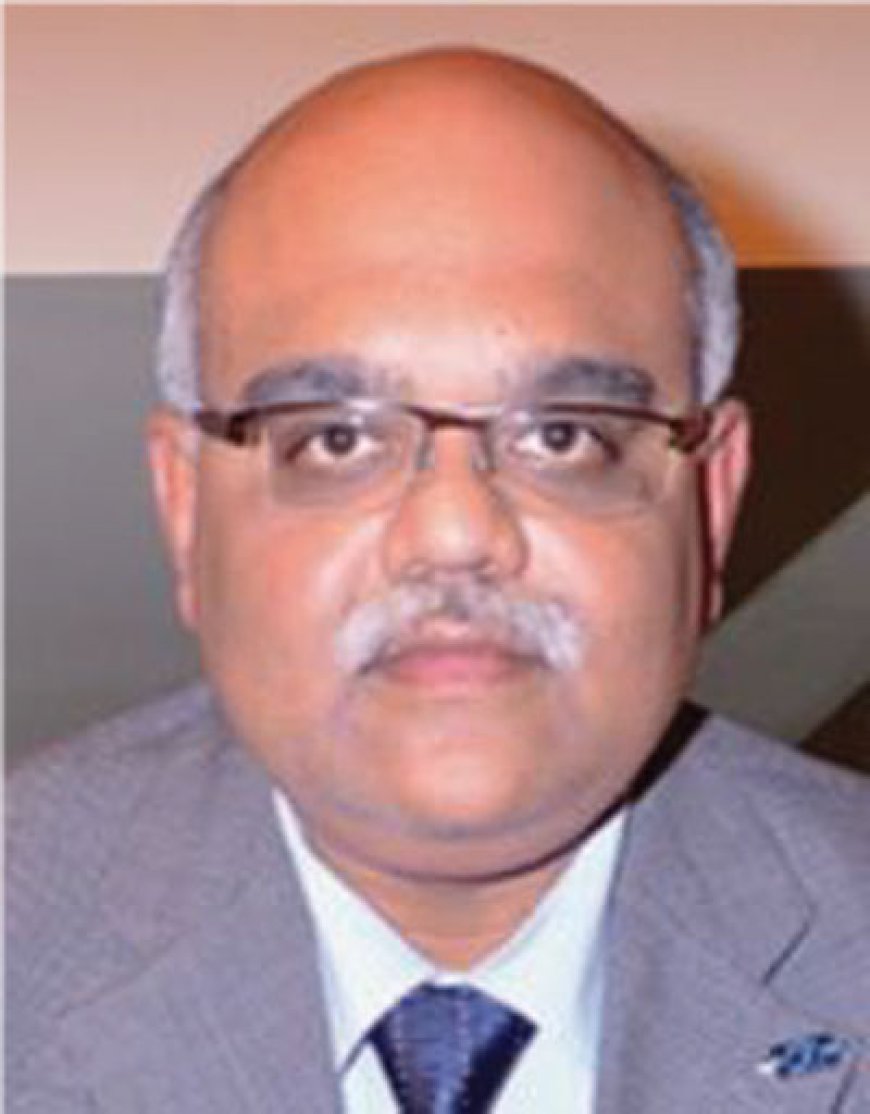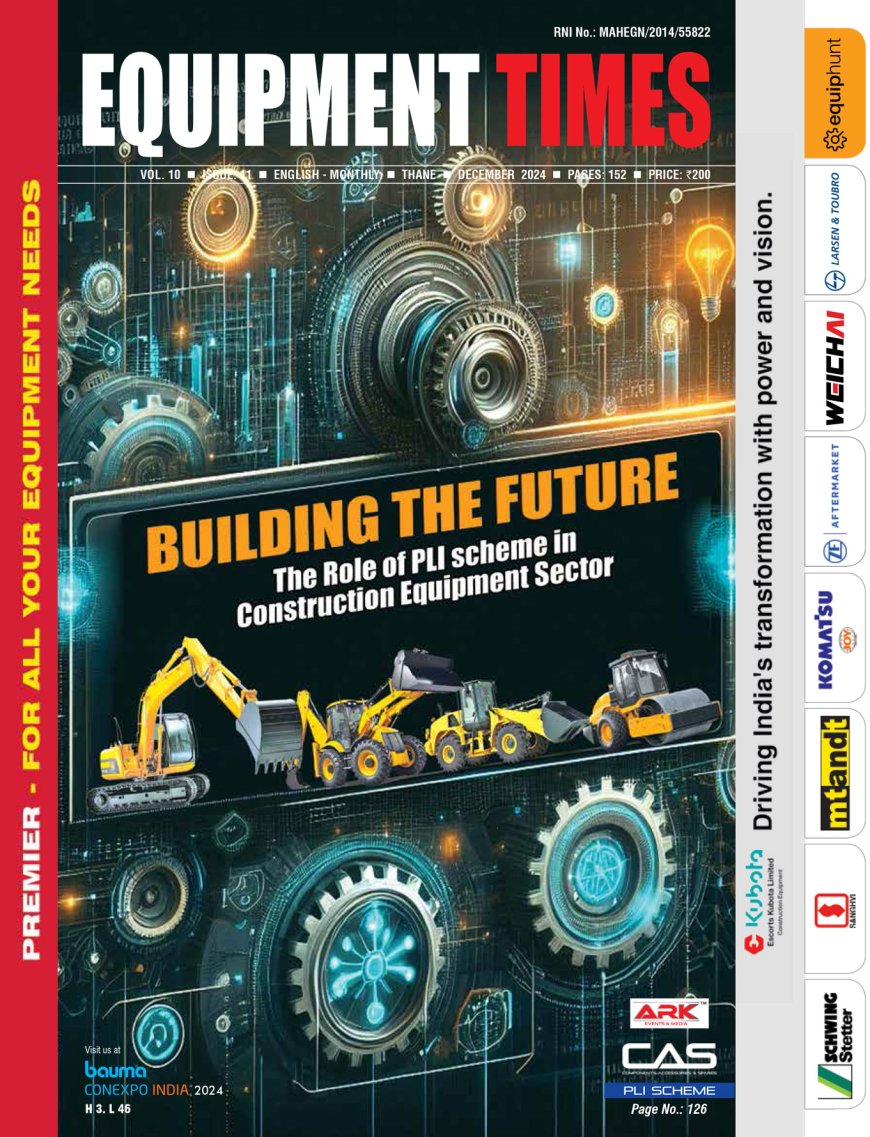Scania : Embracing new technologies to drive change
What are the key drivers fueling growth in sales of off-highway vehicle engines? Infrastructure and urbanization are two major aspects driving the growth of the off-highway vehicle engine sector in India. Growing investments in the infrastructure sector and other strategic

What are the key drivers fueling growth in sales of off-highway vehicle engines?
Infrastructure and urbanization are two major aspects driving the growth of the off-highway vehicle engine sector in India. Growing investments in the infrastructure sector and other strategic initiatives of the government are expected to boost the Engineering, Procurement and Construction & Turnkey Sector in the country in the mid to long term horizon. This in turn is expected to ensure a steady growth in the demand for such turnkey equipment and other off-highway vehicles. Impetus on sectors like urban development, national highways, rural and border roads, irrigation, electricity, mining and overall industrialization on a holistic view will benefit the segment.
Engines are the highest growing market as demand for backhoe loaders and mini excavators are on the rise. Do you face any major challenges to cater to the increase in demand?
We operate in the niche segment and cater to the heavy-duty equipment segment from approximately 270 Hp to 770 Hp. For example, we provide engines for crushers, concrete pumps, boom pumps, heavy excavators, diesel generators and heavy-duty cranes. The demand for such equipment is gradually reviving. Our supply chains are agile and adaptable, well diversified and except for the initial hiccups due to lockdown, we have not faced any major challenge when it comes to catering to the demand.
With OEMs pushing to extend the deadline of implementing next stage of emission norms to next year, what is its impact on the engine sector?
Energy efficiency has been at the core of Scania’s offerings and hence our products have consistently improved performance by enhancing fuel efficiency and reducing carbon emissions. Scania engines take performance, dependability and operating economy to new heights. The global engine platform from Scania meets every existing and foreseeable emission legislation. With three engine sizes of 9L, 13 L and 16 L there’s always a powerful and emission leading option from Scania.
For the industrial engines, along with meeting Indian emission norms, we have very dependable emission ready offerings for all the advanced markets like US & EU, Stage 4F and Stage V and China Phase IIII.
Building on our global expertise, we are ready for all the current and upcoming emission norms in India, where we see opportunities including –
- Proven and well-tested solution with highest market acceptance
- Aftermarket readiness to ensure the customer can realize the advantages of Scania technology
- Significant positive impact on the environment.
Increasing stringency of emission norms has led to several technological advancements in the off-highway industry with few players introducing alternate fuel engines? Could you highlight these innovations along with its benefits?
Productivity from power and performance is a natural part of the deal when choosing Scania. Irrespective of the application, our new engines take fuel economy and operational performance to new levels and contribute to outstanding efficiency throughout your entire production process. Not to mention the environmental benefits.
We have alternate fuel technology readily developed. However, the success in such cases depends on the entire ecosystem which is still evolving. We are working with our customers, the fuel supplier, universities, financing partners and local governments across the geographies for the successful introduction of such technologies.
Could you throw some light on the upcoming evolution in the engine sector?
There is an intensive technological development that has the potential for positive change. The technology shift is changing the reality for industries in general, and the equipment industry in particular.
Global macro trends here include automation – where artificial intelligence and robotics are transforming companies, industry flows and vehicles; connectivity – where more and more devices and machines are connected to cloud services fed by enormous amounts of real-time data; and electrification – where technological development will make it possible to produce sustainable batteries that will contribute to a zero-carbon footprint, quieter vehicles, good drivability and no exhaust emissions.
The world is facing radical changes. Global trends such as urbanization, environmental concerns and technological development are coming together to act as a ‘shift’, which is profoundly reshaping societies and industries. The industrial engine industry is not an exception for this shift.
An effect of these global trends is that the interest in sustainable energy solutions is rapidly increasing; corporations, companies, governments and local authorities are adopting ambitious policies and committing to cleaner, low-carbon operations. After a tipping point, decarbonized power solution will take off and become the ‘new normal’.
For Scania, great things are happening with the fast-emerging technology featuring strongly in all areas where Scania is active including this sector, through our technology roadmaps, research and development plans, and through partnerships.
What are the initiatives taken to upgrade engines and keep abreast with the latest technology in the world?
Innovation is part of what makes Scania unique. We’re constantly embracing new technologies to drive change and push forward at every turn. Our innovations are aimed at the betterment of customers, society and the environment.
By harnessing the smart technology, advanced sensors and wireless connectivity we are offering the services of connected engines to our OEM and end customers. We already have hundreds of thousands of constantly connected vehicles and engines in use all over the world today. It provides the data that doesn’t only improve our engineering but also lets us create tailored product and service offerings based on exact usage patterns for individual applications and customers. Connected engines lead to lowered fuel consumption, reducing wear and maintenance needs, all the way to automating tedious administrative work so our customers can keep the focus on managing their core business.
More importantly, connected engines bring incremental benefits to both, OEM customers and Equipment End users.
OEMs can benefit through –
- Useful insight for future product development
- Engine performance
- Fuel consumption
- Environmental impact
- Improved product offering due to higher equipment uptime
- Improved resource allocation due to awareness of equipment location
Customers can benefit through –
- Improved uptime
- Remote diagnostics
- Status monitoring & maintenance planning
- Fleet control
- Position & tracking
- Geofencing
- Environmental impact
- Fuel consumption
- Efficient maintenance
Are your engines future-ready and emission compliant?
One will attain success by being structured, positively driven and flexible, adept at balancing the needs of from customers and ongoing activities.At Scania, we embrace every effort to reduce the effects on climate and the environment. This is why emission control goes hand in hand with our mission to reduce fuel consumption and the environmental impact. Taking off from our new engine platform, there is a Scania engine for every existing and foreseeable emission step. Whichever Scania engine specification you choose, you can be rest assured that every cubic millimeter of fuel is converted to productivity in the cleanest and most economical way possible.
For the industrial engine business, along with futuristic Indian emission norms we have very dependable emission ready offerings for all the advanced markets like US / EU Stage 4F and Stage V and China Phase IIII. Similarly, in Marine & Power Generation we are offering the emission compliant products meeting global emission requirements.
Recent Achievements
- Scania announced a deal with the Japanese construction equipment manufacturer Kobelco to supply it with 13-litre low emissions industrial engines. Scania engines will be fitted into Kobelco’s huge new mobile cranes which can lift more than 300 tonnes.
- Scania Transport Laboratory, the company’s in-house hauler, is showing the way towards emission-free logistics with its strategic decision to exclusively operate on HVO (a near-zero carbon alternative to diesel), hybrids, ethanol and biogas.
- Scania co-founded a consortium with the purpose to stimulate a roll-out of gas fueled trucks. With EUR 2.9 bn in EU funding, the consortium BioLNG EuroNet, including Shell, Grupo DISA, OSOMO and Iveco focuses on producing liquefied biogas from waste and residues and on building a network of gas filling stations covering key commercial routes in Europe.
Hits: 87










